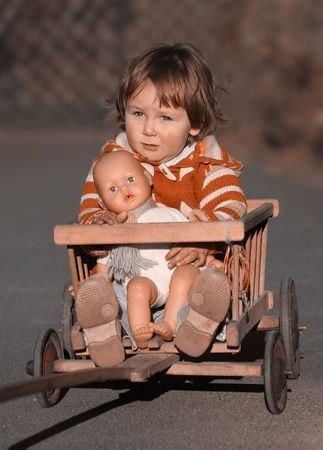The other day I was attending a very heated legislative committee meeting in Utah where changes to the way state school teachers teach about sexual health were proposed. I recognized some of the legislators were not acknowledging the real solution to the problems facing teenagers.
Debate and public comments on the proposed changes went on for hours. Lawmakers didn’t like the bill and ended up voting it down. However, right before the bill was officially refused some legislators expressed concern about some of the sexual problems they see pertaining to young people nowadays. Even though it wasn’t the solution, they understood why the bill was proposed.
One legislator said that he didn’t know the solution to all the problems he was seeing in young people, but he would really like someone to figure it out. He also said that since times have changed, we need to make some changes, but he isn’t sure the right way to do it.
It is to that legislator’s suggestions that I would like to address my thoughts in this article.
The moment he expressed his concerns I had some thoughts. The first thought was this is a parenting issue, not a legislature issue. Legislators aren’t meant to take care of every problem facing an individual or family. They simply can’t, and even if they try it won’t be effective. They are too far away from the problem. The only solutions they can offer are a statement of encouragement or caution, a law that makes behavior illegal, or money to fund new programs. None of these legislative options would be effective in changing a teenager’s behavior problems, such as engaging in dangerous sexual acts.
The only way to solve the teenage sexual behaviors is for the teenagers and parents to improve their relationship and connection by establishing consistent, quality, open communication and to have clearly understood family roles. With correct family roles, teenagers will understand and embrace the fact that they’re still learners and that their parents are teachers. They’ll learn the importance of adhering to their parent’s counsel with love and respect. To achieve this, families need more uninterrupted time to talk, play and learn together.
A Change of Heart
The second thought I had was a comment from my 20-year-old son related to another issue. He said, “We can’t legislate good behaviors.” He’s right. Just because something is written on a document doesn’t mean a heart is changed or a behavior problem is corrected.
Long-term change of behavior is an indication that a heart has changed. For the sexually active or pornography viewing teenagers to have a change of heart, they need to have a vision of what type of life they want to have as adults. I wonder if anyone has taken the time to talk about where they see their lives in 10 years and what they want most out of life. Do they know the true recipe for a happy life?
They also need to be taught problem-solving skills by their parents. These are skills that can not only be applied to all difficult situations, but also empower them to choose differently. Learning proper adult skills while young is key for future success as an adult.
Ultimately, a changed heart means a repentant heart. When children see who they want to become and a parent helps them take the necessary steps to become that good person, then they can achieve that objective. Good works and good discussions will help them fully sacrifice and leave behind the sexual temptations of the past.
Our Changing Times?
Are sexual temptations a thing of the present but not the past? People seem to look at sexuality (experiencing sexual pleasure) as one of the hallmarks of a good life these days. Conversations about serving others and living with purpose and purity seem to have been replaced with conversations about mapping out your sex life and making sure each person “feels good” about what they do sexually.
When I heard this state representative mention how our times had changed and how we definitely need to make some changes, but he didn’t know what changes needed to be made, I felt like the room was left in an unnecessary black hole.
Have our bodies and sexual natures ever changed in the history of humanity? Are sexual urges and bad sexual choices new? No. That would be impossible. So, what is new? The only thing that has changed in our times is the reprioritizing of morals, values, purpose and facts pertaining to each individual, family, and our environment. A Facebook group page dedicated to the “smart” education of children has a slogan: “Facts taught in school, values taught at home.”
When I saw this slogan I wondered how they think the school would ever be able to not teach values. It’s impossible. If religious or patriotic values are not taught at school, but only facts, then those facts will become the values. Isn’t the purpose of a fact to lead a person to understanding a truth? If schools teach facts and not values, then children are just left to being indoctrinated with information that could be contrary to what they hear at home and church.
I guess times have changed, but the solution isn’t to give more and more unnecessary facts. Instead, we need to focus as a society on empowering parents with the responsibility to give more and more values, morals and truths to their children.When a person has values, they have obligation, duty, purpose, integrity and virtue. These are precisely the things we need in these changing times.
Dear unnamed legislator, The answer to the problem of teenagers engaging in too much sexual behavior these days is this: To change the hearts of the children we must first strengthen the hearts of the parents. Parents are the hearts of families. They must effectively fulfil their parental roles and create a culture that is stronger than the current pop culture and social culture. Unfortunately, these are the cultures being followed more often than a healthy family culture in homes worldwide these days.
To learn more about training a heart listen to the “Training the Heart” audio class by Nicholeen.










